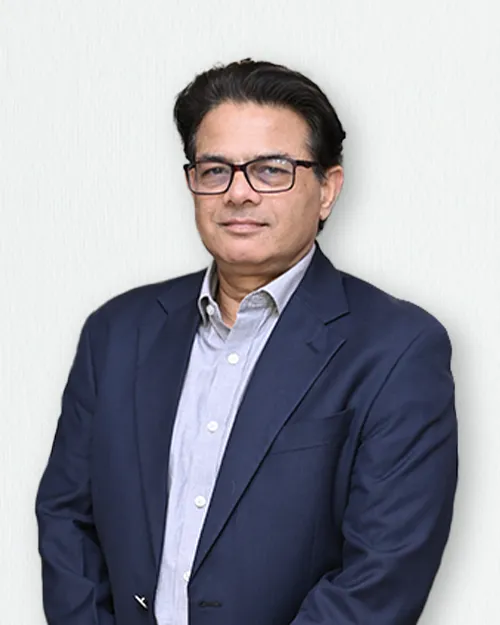Learnings from the pandemic about recruiting healthcare technology workers

Forced by shortage of healthcare staff, Indian healthcare organisations are changing the way they recruit healthcare personnel and looking at reskilling and upskilling the medical workforce.
Economic changes brought about by the pandemic have led to social challenges such as shortage of labour and the ‘great resignation’. The healthcare market has had an overhaul in this regard, with personnel either quitting or contracting COVID-19.
The COVID crisis highlighted India’s critical shortage of medical staff, including doctors, nurses, paramedics, and technicians. We have 37.6 health workers per 10,000 people, where the WHO (World Health Organization) standard is a minimum 44.5.
This is why Indian healthcare organisations are changing the way they recruit healthcare personnel and looking at reskilling and upskilling the workforce.
The pandemic has changed the way most people work; this means that people are looking for jobs that satisfy these changed dynamics for them. Therefore, employers need to be flexible to allow employees the freedom to work with these conveniences to get the best of the talent on-board
IKS Health is a global healthcare solutions provider that helps physician enterprises deliver better, safer, and more efficient care with the help of technology that forms the basis of their business model.
Its globalised and centralised delivery model has created thousands of jobs in India with a diverse set of employees, including revenue cycle management professionals, life sciences graduates, doctors, pharmacists, software developers, coders, technology professionals and data scientists.
Srivastava says that the challenge for healthcare organisations right now is to attract and retain talent.
“India is in the forefront of extraordinary technology talent, although there is a demand supply imbalance that can be witnessed. The challenge for hiring teams around the world is to attract and retain the right talent pool for their organisations. This can be done through identifying talent that is a culture fit,” he says.
“Retention is another challenge that can be addressed by building resilience through training and ensuring a favourable onboarding experience, thereby inspiring advocacy that could go a long way in attracting more suitable talent,” he adds.
He further explains that new trends in hiring are showing up in the processes, which demand flexibility from employers.
“The pandemic has changed the way most people work; this means that people are looking for jobs that satisfy these changed dynamics for them. Therefore, employers need to be flexible to allow employees the freedom to work with these conveniences to get the best of the talent on-board,” he says.
“There has been an uncertain hiring trend in the past year that has now resulted in a race to pick the best of the lot quickly. These roles are demanding and fast moving, allowing organisations to target the right set of cultural fits for the particular job. At the same time, giving candidates a lot more flexibility to choose the right fit for themselves,” he reiterates.
Going Remote While Hiring
The pandemic has been a huge learning experience for all industries, and it has greatly impacted how we hire, says Srivastava. Jobs in the healthcare industry are stable, are in high demand, and are increasingly becoming remote-friendly.
“Organisations needed to reimagine how to hire candidates without ever personally meeting them or letting them see the office premises. Recruiters had to provide an experience of the organisation through the computer screen, and make it sell. This has also enabled recruiters to expand their reach to various geographies that were out of their purview previously,” he says.
Organisations needed to reimagine how to hire candidates without ever personally meeting them or letting them see the office premises. Recruiters had to provide an experience of the organisation through the computer screen, and make it sell
Focused engagement of candidates with the right messaging and content throughout the hiring process till the time they were on-board has also been key, he adds.
“All this needed to be done remotely and had to mimic the in-person interactions and warmth. This has helped hiring teams to be more integrated with the purpose of the organisation, thus allowing them to reflect the organisational message and narrative,” he explains.
As organisations grappled with on-boarding new talents through the pandemic, they had to reinvent the way new employees were integrated into the system.
“This was a blessing in disguise for many organisations as this needed a relook at many processes and policies, helping organisations reinvent how they on-boarded people. It also encouraged organisations to demonstrate a sense of reliability, transparency, and empathy towards the employees,” he recalls.
In-demand Healthcare Technology Jobs Post Pandemic
Numbers show that the pandemic’s effect on healthcare employment has been quite positive, which is now predicted to grow faster than other occupations. According to the Bureau of Labor Statistics (BSL), the demand for healthcare jobs are high and will grow by 14% between 2019 to 2029.
“The pandemic taught us to relook at how things are done, particularly in the healthcare sector. While healthcare was already deeply interlaced with technology, we still continue to explore newer scope every day. This has meant that the industry needs a talent pool to fill in these newer avenues that are being identified continuously,” says Srivastava.
While healthcare was already deeply interlaced with technology, we still continue to explore newer scope every day. This has meant that the industry needs a talent pool to fill in these newer avenues that are being identified continuously
“These roles could include technology product management, product engineering, technology architecture, data science, cognitive technology and data engineering, DevOps, implementation and support,” he adds.
These are dynamic roles that enable the development of technology throughout the healthcare value chain.
Dire Need to Reskill & Upskill the Healthcare Tech Sector
A study conducted on the health force of India reflects a highly skewed distribution of health workforce across states, rural-urban and public-private sectors. Many active health workers were found inadequately qualified, while over 20% of qualified health professionals aren’t active in labor markets.
Not only is there a dire need to invest in healthcare human resources, but there’s also a need to upskill or reskill the force through investment in professional colleges and technical education.
“Managing reskilling and upskilling programs play a crucial role in making sure that as the employees create solutions that are supported with a strategic vision, using some of the latest developments and techniques,” says Srivastava.
Managing reskilling and upskilling programs play a crucial role in making sure that as the employees create solutions that are supported with a strategic vision, using some of the latest developments and techniques
“Allowing L&D teams to integrate training and development at relevant stages of the employee’s career. These could include functional, managerial as well as leadership interventions, therefore, affording employees an opportunity for overall development,” he adds.
Another significant change that he points out in the post pandemic hiring is the advent of technology in the hiring processes.
“Many digital tools are available to enable recruiters to now look at resumes wider and deeper in expanse. For instance, the administrative and mundane tasks of sifting through hundreds of CVs can now be automated with AI intervention that could identify and anticipate the right fit for the job,” he explains.
Indian Healthtech vs. US & Europe
Indian medical facilities are steadily going up in technologies. Recently, the Indian Spinal Injuries Centre (ISIC) became the first healthcare facility in India to integrate O-Arm, a 3D imaging system, with MAZOR X™ Stealth Edition, the most advanced minimally-invasive robotics procedure, for spinal, orthopaedic and neurological conditions.
This integrated model of health service delivery is in line with the global best practices and already in use in multiple sites across the US, Europe including the UK, Spain, Italy, Germany, Singapore, and Australia.
Similarly, Breathe Well-being Diabetes Management Program (BDMP) became the first healthtech company from India to be recognised by the American Diabetes Association (ADA) in reversing Type 2 Diabetes. The clinically proven digital program uses a personalised coach driven, community first approach through interactive gamification to help people with Type 2 Diabetes reduce HbA1c, lose weight, and stop medication eventually.
From a talent pool standpoint, India has a competent talent pool and places us at par with some of the more evolved economies
“From a talent pool standpoint, India has a competent talent pool and places us at par with some of the more evolved economies,” says Srivastava.
Healthtech has been able to rake in finance as well. Zini.ai, an AI-powered multilingual virtual physician, a flagship product by Delhi-based Grainpad Pvt Ltd, raised Pre Series A funding from Solarus Group, a London based VC and Private Equity firm with presence in England, Egypt and India. The funds will be used towards enhancing existing technology, new business development and expanding into new geographies.
SecureKloud Technologies Limited (SecureKloud), a Chennai-based IT and cloud solutions company, approved to list its step-down subsidiary Healthcare Triangle Inc.™ (HCTI) in NASDAQ, marking a milestone moment.
Healthtech Advancements Post-COVID
We suddenly witnessed several advancements in healthtech. According to Juniper, smart hospital market values will reach US$59 billion globally by 2026, with US and China leading growth. Even Flipkart entered healthtech by launching Flipkart Health+, an e-pharmacy service.
This kind of tech adoption is leading and will lead to further social changes. For example, according to a study conducted in India, mobile health adoption has a huge impact on social influence, behavioural intention, and trust.
In the post-pandemic world, certain industries have been changed beyond recognition, and technology has a big role to play in it all. Apart from FinTech, EdTech, and ecommerce, healthcare is a sector that has adopted technology in unprecedented ways.

Abhay Srivastava
Chief Human Resources Officer at IKS Health Limited


